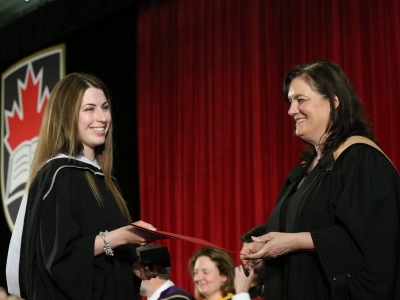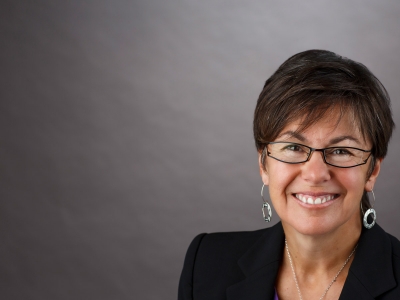By Elizabeth Kane
At Carleton University’s fall convocation, more than 1,200 graduates from the class of 2024 are crossing the stage, marking a journey defined by resilience, innovation and academic excellence. This ceremony not only recognizes their dedication to learning but also highlights exceptional achievements, with Carleton awarding prestigious medals to celebrate the commitment of Ravens who have excelled in their studies.
Continue reading to learn more about six inspiring students.
Governor General Gold Medal
Brodie Hobson, PhD, Building Engineering
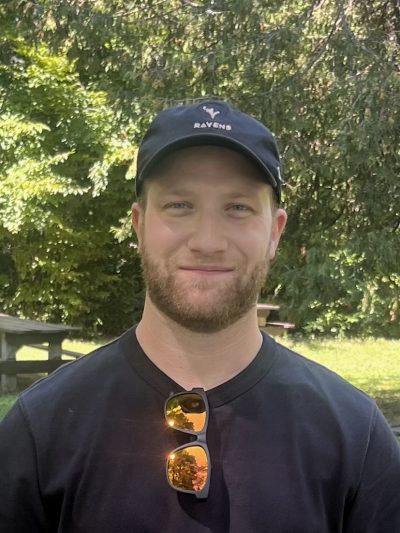
Brodie Hobson
Brodie Hobson was studying Architectural Conservation and Sustainability Engineering at Carleton when, during his undergrad third year building science course taught by Prof. Burak Gunay, he discovered his interest in making buildings more efficient by improving the systems they use for heating and cooling.
“I had really enjoyed the subject matter,” he says. “The research discussed in class was related to HVAC systems and data analytics. I found those topics really interesting.”
Consequently, he focused his Building Engineering master and doctoral work on how buildings manage their energy use. He points to the lack of energy savings from commercial buildings during the COVID-19 pandemic.
“When you consider that 90 to 95 per cent of people had left the buildings, the amount of energy that was being used for heating, cooling and lighting was close to the same level as when the building was full,” he explains.
“My research has focused on occupant-centric controls,” says Hobson. “It’s about trying adjust how much heating, cooling and ventilation we’re providing to the building – based on the actual number of people inside.”
For his studies, Hobson’s team implemented energy-saving measures in campus buildings in partnership with Carleton’s Facilities Management and Planning team.
“For the physical implementation of the work, we conducted it on the top floor of the of the Engineering Design Centre.”
Since successfully defending his thesis, Hobson has been working at Natural Resources Canada as a research engineer. He notes many on his team are fellow Carleton alumni.
“I enjoyed doing research at Carleton, and I am happy that I can continue doing research with people from Carleton in my new role.”
In addition to his full-time position, Hobson now teaches the same building science course that first introduced him to his field of expertise. He encourages future students to not be discouraged when facing new challenges and to continue to explore where their passion lies.
“I was a middling student in my undergrad until I got into those later years of study and started to find the things that I was truly interested in,” he says. “If you have a passion for something, the results will follow once you’ve immersed yourself in it.”
Governor General Silver Medal
Nic Watson, Bachelor of Computer Science (Honours)
Nic Watson had just finished his PhD in Communication when he decided to pivot. Interested in technology and having completed a minor in Computer Science, he was drawn to Carleton’s cybersecurity stream and was able to complete his Bachelor of Computer Science in only two years.

Nic Watson
“The cybersecurity program came to my attention, because it is an area I’m interested in and is in high demand,” he says. “I thought it was a good opportunity for launching a career in the field.”
While a departure from his doctoral work, Watson enjoyed the material – especially his fourth year security class and working on his honours project focusing on Internet of Things security protocols.
During his time at Carleton, Watson made a meaningful impact by getting involved as an academic coach with the Enriched Support Program (ESP). His unique experience as both a former doctoral student and current undergrad equipped him well to help his peers.
“I like teaching and even though that’s not my current career path, I wanted to do a little more before I go into the corporate world,” he says, helping first year computer science students with class problems and advising on study skills. “It’s a great program that helps students ease into university – especially that challenging first semester.”
While Watson managed a full schedule of coursework and ESP commitments, he also found time to work on a book manuscript based on his doctoral dissertation, which he aims to have published next year.
Looking ahead, Watson plans to use his degree to work in the cybersecurity field. His advice to future students is to reach out if they come across challenges when transitioning to university.
“There are resources that can help,” he says. “You can talk to your teaching assistants, go to a workshop or find peer-assisted study groups.”
University Medal for Outstanding Graduate Work
Lindsay Robinson, PhD, Political Science
Carleton’s depth of expertise in international relations and gender and diversity appealed to Lindsay Robinson as she searched for a school to complete her PhD in Political Science.

Lindsay Robinson
“I do feminist, critical post-colonial, decolonial, anti-imperialist research, so the strength of the faculty drew me in,” she says, noting the program’s inclusiveness as it related to her research. “It’s wonderful for students of these critical theories to be able to have a space where their work is welcomed.”
Robinson’s studies focused on the representation of girls in climate change politics. Her research revealed that while girls have been celebrated in superficial ways, that was far from the extent of their engagement on the issue.
“When we take the time to listen to what girls are saying, we find spaces of social movement politics, of advocating for creative and transformative solutions to the workings of power that often remain unquestioned,” she says. “Girls are doing impressive things; we’re not giving their political arguments enough credit.”
Robinson looks back with appreciation on the research opportunities she embraced and the valuable professional connections she forged throughout her doctoral journey.
“It was great to have a space where you can discuss ideas openly and get feedback from other people,” she says. “It was wonderful to have that supportive environment.”
Now working as a consultant specializing in gender and global development, Robinson advises future students that might be considering advanced degrees to ensure they take care of all areas of their daily life while in pursuit of their education.
“Maintain your friendships and aspects of your life that you love – whether it is something like yoga or dance,” she says. “That balance will allow you to have more mental space for intellectual work.”
Claire Peneycad, Master of Science, Biology
Claire Peneycad was completing her undergraduate degree at Carleton in Health Sciences when she realized she wanted to continue her education in Biology.
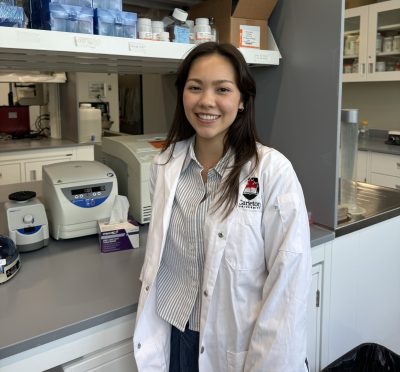
Claire Peneycad
“Health sciences is really interdisciplinary,” she says. “Because of this, I was exposed to a lot of different aspects of health research and I knew that going forward I wanted to have my focus be on molecular biology.”
While completing her Master of Science in Biology, she conducted research focused on how cancer cells respond to splicing stress.
“Splicing is one of several critical steps in the processing of our genetic information. By inhibiting this step, we were able to explore how the cells respond on a molecular level,” she says. “My thesis research focused on understanding one specific stress pathway that gets activated in response to splicing inhibition.”
Completing both her degrees at Carleton, Peneycad says she appreciated the support the university community provided.
“I had a great supervisor, and I made a lot of friends, so I was in an environment where I felt that I could ask questions, make mistakes, and learn new things,” she says, noting the challenges that come with conducting research experiments. “It was helpful to have people around me who were experiencing similar challenges with their experiments, and we would encourage each other through them.”
Now a research assistant at Carleton, Peneycad hopes to continue working in research with a focus on clinical health.
She advises future students to not let lack of experience deter them from trying new things.
“Don’t write off a certain area that you might be interested in, just because you feel like you don’t have all of the background knowledge or experience,” she says. “The point of being a student is to learn, so you don’t need to have all the knowledge or experience when you’re just starting out.”
Chancellor’s Medal
Catherine Li, Bachelor of Computer Science
Catherine Li had already completed a degree in Engineering, but her love of math and logic drew her to the Computer Science program at Carleton.
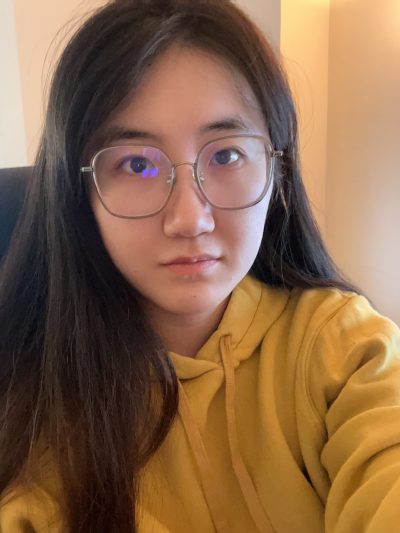
Catherine Li
Throughout her coursework, she found the material very engaging.
“Courses that involved AI, like machine learning, were my favourite parts of the program,” she says.
Completing a portion of her degree during the COVID-19 pandemic, Li appreciated the ease of use of Carleton’s online teaching tools and her supportive faculty.
“They were friendly and helpful,” she says. “Whenever I had questions, they were very happy to answer.”
During her degree, Li took part in three co-op terms with the Canada Revenue Agency.
“Co-op is a very good opportunity for undergraduate students to develop their interests and connect with future employers,” she says.
Li encourages future students to start their assignments early and if they find they don’t like their program – to feel free to change it.
“Choose the field or the major that you really love,” she says. “If you change your mind, you can always try another one.”
President’s Medal
Katherine Larose, Bachelor of Science
Katherine Larose knew she wanted to apply to medical school. To set a solid foundation to help get her there, she found herself drawn to the Neuroscience and Mental Health program at Carleton.
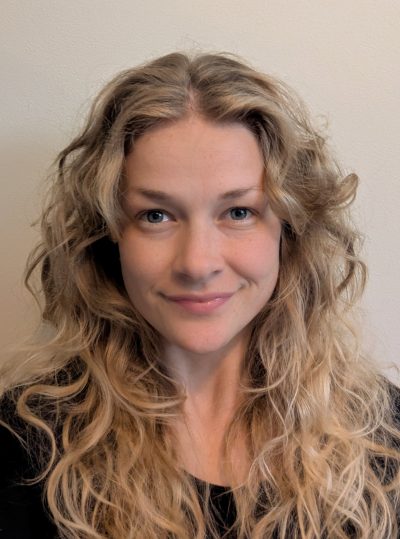
Katherine Larose
“I thought that it would be really cool to learn how the brain works and try to understand why things happen the way they do in the mind,” she says.
Larose says she was especially interested in learning about how the brain develops in utero and developmental neurology. During her time at Carleton, she was able to put her studies into practice working in Prof. Hildebrand’s lab to study chronic pain.
“We got to try many different research techniques, which was a very enriching experience.”
Larose shared her appreciation for those that make the Neuroscience program possible.
“The support staff and professors in the Neuroscience department, are absolutely amazing,” she says. “They are passionate about the science, make students feel valued and like our career goals are really important.”
Reflecting on her time at Carleton, Larose notes how inclusive she found the community to be – especially when forming friendships with others chasing similar educational goals.
“We’ve really supported each other through our paths at Carleton,” she says. “It was fun to have people just as motivated supporting and encouraging me.”
Now enrolled in medical school, Larose credits keeping her perspective as a key to her success.
“It was important for me to remember that I chose to be in class, it wasn’t a chore,” she says. “What I am learning is helping to bring me to the future that I want. I think that is really important to keep in mind when times are hard.”
Thursday, November 7, 2024 in Convocation, Convocation 2024, Faculty of Engineering and Design, Faculty of Public and Global Affairs, Faculty of Science, Grad Stories
Share: Twitter, Facebook
